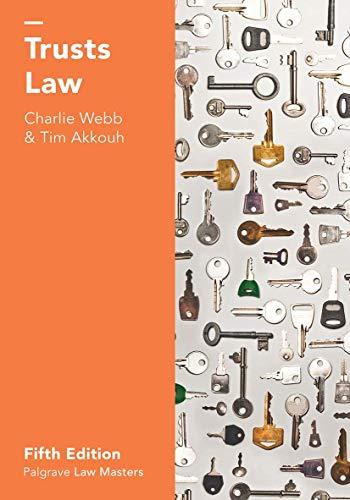Question
You're the founder and CEO of a publicly traded biotech firm that recently came up with a promising cancer drug. Right now, life on Wall
You're the founder and CEO of a publicly traded biotech firm that recently came up with a promising cancer drug. Right now, life on Wall Street is good: investors are high on your company, and your stock price is rising. On top of everything else, your personal wealth is burgeoning because you own a lot of stock in the company. You're simply waiting to hear from the FDA, which is expected to approve the product. But when the call comes, the news is bad: the FDA has decided to delay approval because of insufficient data on the drug's effectiveness. You know that when investors hear the news, the company's stock price will plummet. The family and friends that you encouraged to buy into your company will lose money, and you'll take a major hit.
Quickly, you place an order to sell about $5 million worth of your own stock. Then you start making phone calls. You tell your daughter to dump her stock, and you advise your friends to do the same thing. When you tell your stockbroker the news, he gets on the phone and gives a heads-up to his other clients. Unfortunately, he can't reach one client (who happens to be a good friend of yours), so he instructs his assistant to contact her and tell her what's happened. As a result, the client places an order to sell four thousand shares of stock at a market value of $225,000.
Let's pause at this point to answer a few questions:
- Are you being a nice guy or doing something illegal?
- Is your stockbroker doing something illegal?3. Is the assistant doing something illegal or merely following orders?4. Is the stockbroker's client acting illegally?
Fast-forward a few months. Federal investigators are interested in the sale of your stock and the sale of your daughter's stock. Because all signs point to the truth as being an invitation to trouble, you lie. When they talked with your friend about her sale, say investigators, she explained a standing agreement that instructed her broker to sell the stock when the market price went below a specified level. It sounds like a good explanation, so you go along with it.
Now, answer this question.
- What have you done wrong? What has your client friend done wrong?
The Reality Version of the Story
At this point, let's stop protecting the not-so-innocent and name some names. The biotech company is ImClone, and its founder and CEO is Dr. Samuel Waksal. The Merrill Lynch broker is named Peter Bacanovic and his assistant Douglas Faneuil. The client friend who dumped her stock is Martha Stewart.
Let's focus on Stewart, who is the founder of Martha Stewart Living Omnimedia, a prosperous lifestyle empire. Her actions and their consequences are detailed in an article titled "Martha's Fall," which you can access by going to http://www.newsweek.com/id/53363and linking to the MSNBC Web site. Read the article and then answer the following questions:
- Do you believe Stewart's story that she sold the stock because of a preexisting sell order and not because she learned that the cancer drug wouldn't be approved? What did she do that was illegal? What was she actually convicted of doing?
- Waksal got seven years in prison for insider trading (and a few other illegal schemes). Bacanovic (Stewart's broker) got five months in jail and five months of home confinement for lying and obstructing the investigation into the sale of ImClone stock. In return for helping the prosecutors convict Stewart, Faneuil (the broker's assistant) got a federal "get-out-of-jail" card but was fined$2,000 for accepting a payoff (namely, an extra week of vacation and a bump in his commission) to stonewall investigators. Stewart went to prison for five months and spent another five under house arrest. Was her punishment too lenient? Too harsh? If you'd been the judge, what sentence would you have given her?
- How could Stewart have avoided prison? Did her celebrity status or reputation help or hurt her? Did she, as some people claim, become a poster CEO for corporate wrongdoing?
- Why are government agencies, such as the SEC, concerned about insider trading? Who's hurt by it? Who's helped by government enforcement of insider-trading laws?
Write a 3-4 page paper answering the above questions. Make sure to explain in detail how you feel. For example, just do not say "Stewart punishment was too harsh" and leave it at that. Why do you feel that do? If possible, find references to support your argument.
Make sure to use terms that have been talked about in class and in the textbook. Define each term that you use.
Make sure to cite your sources and remember we use APA formatting.
Step by Step Solution
There are 3 Steps involved in it
Step: 1

Get Instant Access to Expert-Tailored Solutions
See step-by-step solutions with expert insights and AI powered tools for academic success
Step: 2

Step: 3

Ace Your Homework with AI
Get the answers you need in no time with our AI-driven, step-by-step assistance
Get Started


